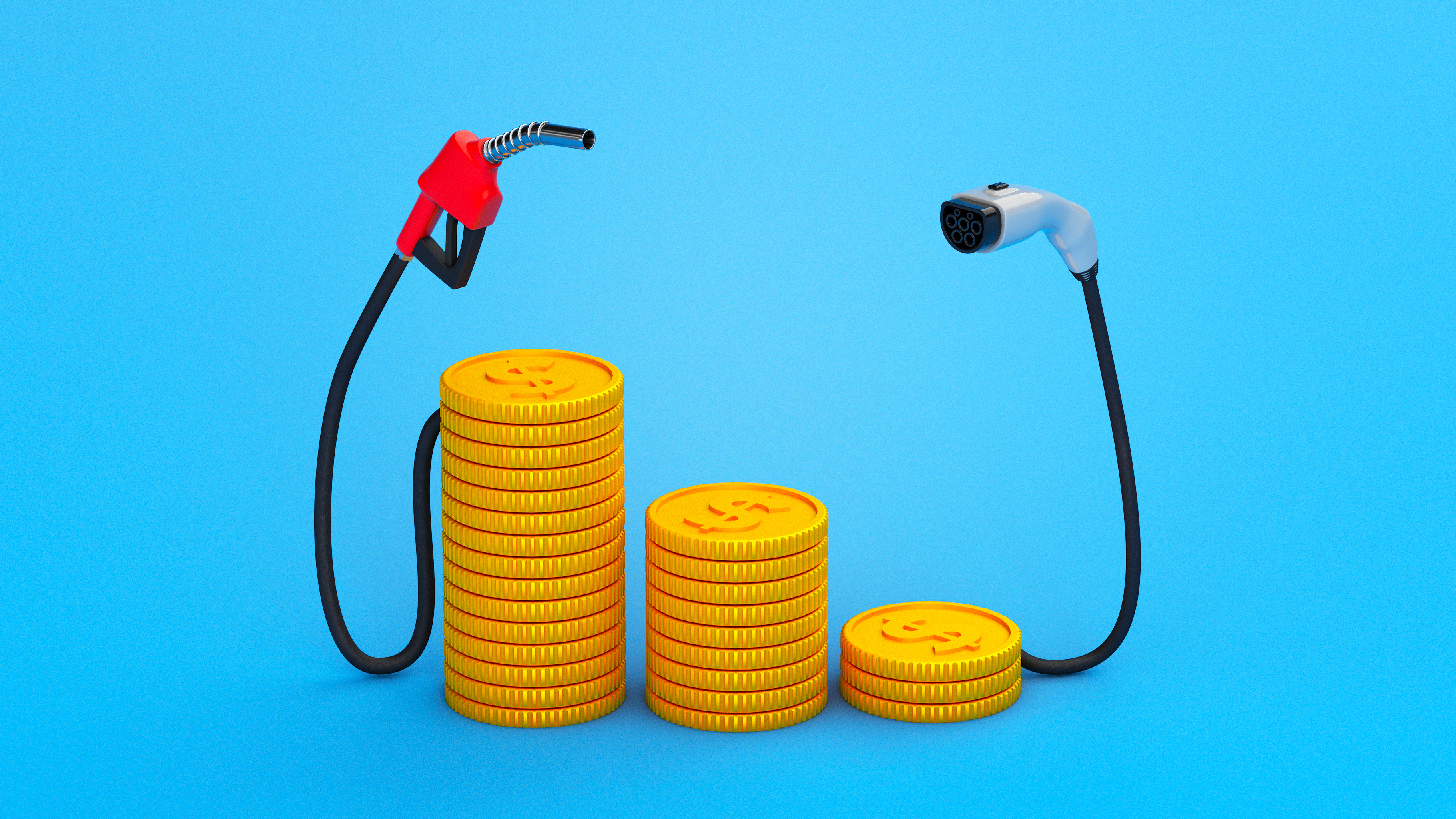Affordable and efficient ways to cool your home in the summer
Air conditioning can be tough on your wallet, but there are a few other ways to tackle the heat


A free daily email with the biggest news stories of the day – and the best features from TheWeek.com
You are now subscribed
Your newsletter sign-up was successful
As summer starts heating up, you might be thinking about how to cool down. The most obvious answer is to crank up the air conditioning, but of course, that's not so easy on the budget. Here are some tips for how you can save yourself from sweating inside all summer long and save some money in the process.
Bigger isn't better when it comes to AC units
It might seem that if you want to get your home maximally cool, you should opt for a larger AC, but an "oversized AC unit" uses too much electricity and "costs more money for less comfort," reported Bloomberg. Sure, it might cool your home quickly, but "it also leaves behind humid air," which means you'll need to crank up the AC even more. Big ACs are also prone to wear and tear and could "burn out more quickly" than smaller units.
Cool yourself, not just your house
Don't only focus on your surroundings to beat the heat this summer, also remember to cool off yourself. "Sip icy-cold drinks, apply a damp cloth to your neck and other pressure points on your body, or have a cold shower to cool your body without needing to switch the air-conditioner on," suggested Good Living.
The Week
Escape your echo chamber. Get the facts behind the news, plus analysis from multiple perspectives.

Sign up for The Week's Free Newsletters
From our morning news briefing to a weekly Good News Newsletter, get the best of The Week delivered directly to your inbox.
From our morning news briefing to a weekly Good News Newsletter, get the best of The Week delivered directly to your inbox.
Try to prioritize the parts of your home where you're spending the most time, Bloomberg added. You don't have to cool off rooms you're not using.
Reconsider certain kitchen activities
Certain activities can really warm up your home. "Any appliance that generates heat adds to your cooling load," said This Old House. This includes your oven, stove, dishwasher, and washer and dryer. As an example, an "oven baking cookies can easily raise the room temperature 10 degrees, which in turn jacks up overall cooling costs 2 to 5%," This Old House noted.
On really hot days, you might skip out on those activities altogether, especially if they're not absolutely necessary, or save them for the cooler evening hours. And if you do need to turn on the oven or another heat-generating appliance, try to separate those rooms from the rest of your home if you can, such as with a thermal curtain, Bloomberg added.
Don't let hot air in
"If you were to add up all the little cracks and places in your house where warm air gets in, the average house would have a hole the size of a basketball," Lauren Urbanek, a senior program advocate, Center for Energy Efficiency Standards, Climate & Clean Energy Program at the Natural Resources Defense Council, told NBC News. Hot air can sneak in from a lot of different places, including "around windows, door frames, and crawl spaces, even around recessed lights."
A free daily email with the biggest news stories of the day – and the best features from TheWeek.com
To identify especially leaky areas, consider asking your local utility to conduct an energy audit, NBC News said. You can also go around your house yourself, sealing off any gaps around doors or windows.
Spend on insulation now to save later
Even if it might not feel like the most exciting expenditure, spending to properly insulate your house can lead to serious savings down the road. "Not having insulation means heat is seeping into your house and your air conditioner is having to work a lot harder," Urbanek explained to NBC News.
Your attic is an especially important area on which to focus your insulation efforts. An attic should have at least "R-22 insulation — 7 inches of fiberglass or rock wool, or 6 inches of cellulose," said This Old House. Otherwise, your attic's heat, which "can reach 150 degrees on a hot summer day," will "drive up cooling costs by as much as 40%."
Block out the light (and heat)
Sunlight beaming in through the windows can seriously heat up your space. Even as nice as that light might be, your cooling bill will thank you if you consider investing in window coverings (even blackout curtains) to shut when the sun's rays are strongest.
"Keeping the curtains shut can result in your home staying about 20 degrees cooler during the summer months," Mike Lemble of Aeroseal, a duct and air sealing company, told USA Today's Reviewed.
Don't skimp on regular AC maintenance
Making sure your AC is in tiptop shape is critical to keep it working to its full capacity. "When filters get caked with dirt it decreases their effectiveness, which will make cooling your home go slowly," Lemble said.
Also check air ducts for any leaks or holes, which "can cause up to 30% of your cold air to escape" and force your HVAC system to work harder, Reviewed reported.
And if things don't seem to be working optimally, seriously consider an upgrade. "If your air conditioner dates back to the 1970s, you can cut its energy use in half by upgrading to a newer model," Bloomberg reported. Even if your AC is just a decade old, "you might save 20% to 40% on cooling costs by upgrading."
Becca Stanek has worked as an editor and writer in the personal finance space since 2017. She has previously served as the managing editor for investing and savings content at LendingTree, an editor at SmartAsset and a staff writer for The Week.
Becca Stanek has worked as an editor and writer in the personal finance space since 2017. She previously served as a deputy editor and later a managing editor overseeing investing and savings content at LendingTree and as an editor at the financial startup SmartAsset, where she focused on retirement- and financial-adviser-related content. Before that, Becca was a staff writer at The Week, primarily contributing to Speed Reads.
-
 6 of the world’s most accessible destinations
6 of the world’s most accessible destinationsThe Week Recommends Experience all of Berlin, Singapore and Sydney
-
 How the FCC’s ‘equal time’ rule works
How the FCC’s ‘equal time’ rule worksIn the Spotlight The law is at the heart of the Colbert-CBS conflict
-
 What is the endgame in the DHS shutdown?
What is the endgame in the DHS shutdown?Today’s Big Question Democrats want to rein in ICE’s immigration crackdown
-
 How your household budget could look in 2026
How your household budget could look in 2026The Explainer The government is trying to balance the nation’s books but energy bills and the cost of food could impact your finances
-
 What is a bubble? Understanding the financial term.
What is a bubble? Understanding the financial term.the explainer An AI bubble burst could be looming
-
 The FIRE movement catches on as people want to retire early
The FIRE movement catches on as people want to retire earlyIn the spotlight Many are taking steps to leave the workforce sooner than usual
-
 Who wants to be a millionaire? The dark side of lottery wins
Who wants to be a millionaire? The dark side of lottery winsIn The Spotlight Is hitting the jackpot a dream come true or actually a nightmare?
-
 How can you find a financial adviser you trust?
How can you find a financial adviser you trust?the explainer Four ways to detect professionals who will act in your best interest
-
 What should you consider when choosing a financial adviser?
What should you consider when choosing a financial adviser?The Explainer The right person can be a big help with financial planning, investing, taxes and more
-
 What Biden's IRA means for EV tax credits: 2024 updates
What Biden's IRA means for EV tax credits: 2024 updatesThe Explainer Which cars are eligible and how much money can owners save?
-
 How to ensure you don't outlive your retirement savings
How to ensure you don't outlive your retirement savingsThe Explainer Your golden years should be enjoyed. Don't let finances get in the way.
